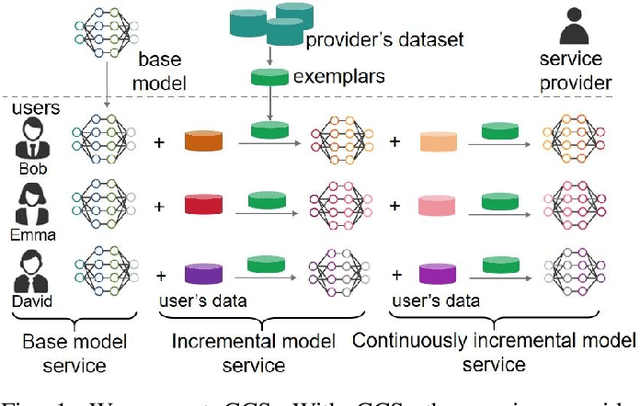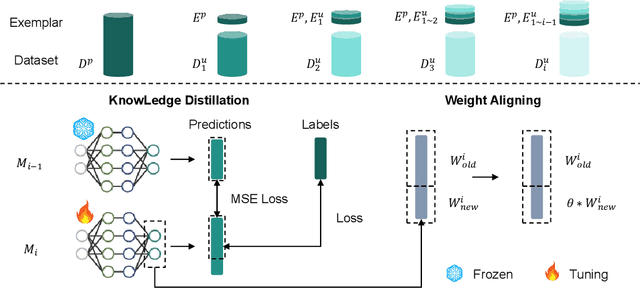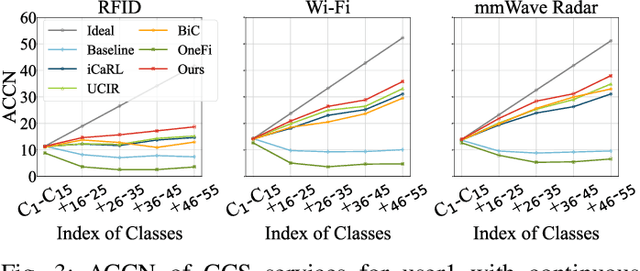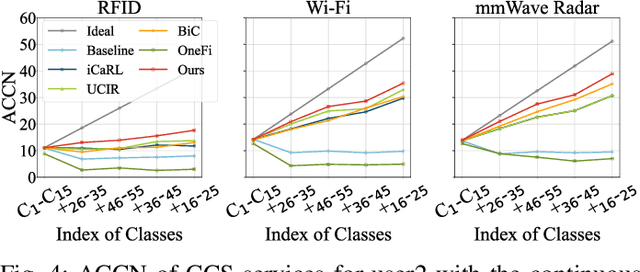CCS: Continuous Learning for Customized Incremental Wireless Sensing Services
Paper and Code
Dec 06, 2024



Wireless sensing has made significant progress in tasks ranging from action recognition, vital sign estimation, pose estimation, etc. After over a decade of work, wireless sensing currently stands at the tipping point transitioning from proof-of-concept systems to the large-scale deployment. We envision a future service scenario where wireless sensing service providers distribute sensing models to users. During usage, users might request new sensing capabilities. For example, if someone is away from home on a business trip or vacation for an extended period, they may want a new sensing capability that can detect falls in elderly parents or grandparents and promptly alert them. In this paper, we propose CCS (continuous customized service), enabling model updates on users' local computing resources without data transmission to the service providers. To address the issue of catastrophic forgetting in model updates where updating model parameters to implement new capabilities leads to the loss of existing capabilities we design knowledge distillation and weight alignment modules. These modules enable the sensing model to acquire new capabilities while retaining the existing ones. We conducted extensive experiments on the large-scale XRF55 dataset across Wi-Fi, millimeter-wave radar, and RFID modalities to simulate scenarios where four users sequentially introduced new customized demands. The results affirm that CCS excels in continuous model services across all the above wireless modalities, significantly outperforming existing approaches like OneFi.
 Add to Chrome
Add to Chrome Add to Firefox
Add to Firefox Add to Edge
Add to Edge